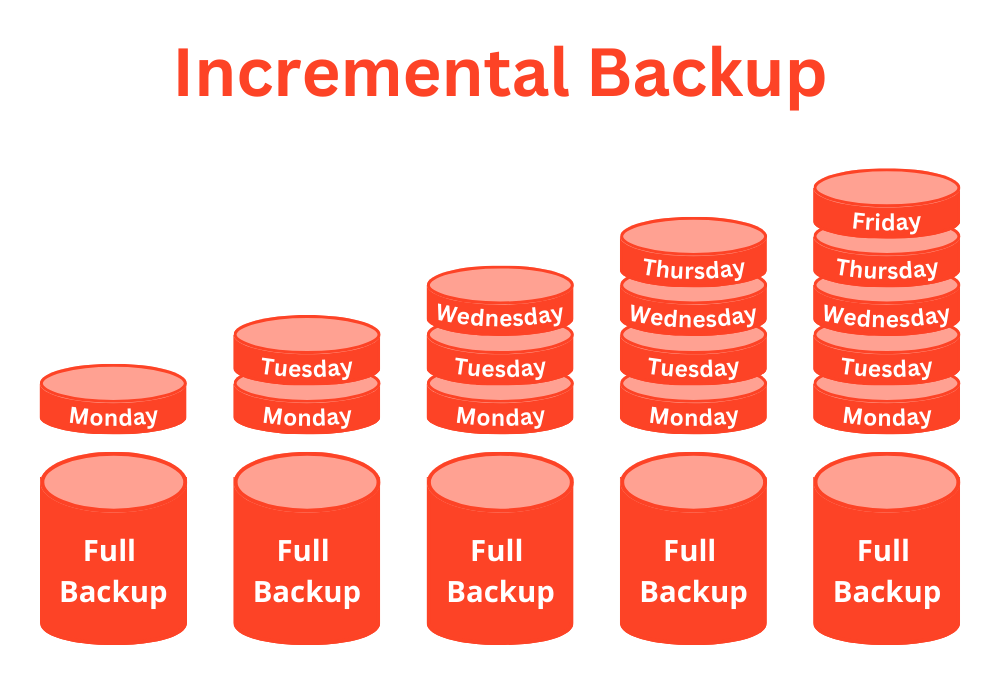Incremental Backup Reduce Backup Time and Storage Space Requirements

Incremental backup reduces backup time and storage space requirements through the following mechanisms:
Selective Backup of Changed Data: Incremental backup selectively copies only the data that has changed since the last backup operation. This contrasts with full backups, which copy all data regardless of whether it has changed. By focusing only on changed data, incremental backups require less time to complete because they process and transfer smaller amounts of data.
Frequent Backup Intervals: Incremental backups can be performed more frequently than full backups due to their reduced backup time and storage space requirements. Organizations can schedule incremental backups to run at shorter intervals, such as daily or hourly, capturing recent changes more frequently. This frequent backup cadence ensures that backup data is up-to-date while minimizing the amount of data processed and stored in each backup iteration.
Efficient Use of Storage Space: Since incremental backups capture only changed data, they require less storage space compared to full backups, which store redundant copies of unchanged data with each backup. By avoiding redundant data storage, incremental backups optimize storage space utilization, allowing organizations to retain more backup history within available storage resources.
Incremental Forever Strategy: Some incremental backup strategies employ an "incremental forever" approach, where full backups are performed only once initially, followed by ongoing incremental backups indefinitely. This approach eliminates the need for periodic full backups, further reducing backup time and storage space requirements. Instead, the full backup serves as a baseline, and subsequent incremental backups capture changes incrementally from that point forward.
Backup Compression and Deduplication: Incremental backup solutions often incorporate compression and deduplication techniques to further optimize backup storage space. Compression reduces the size of backup data by encoding it in a more space-efficient format, while deduplication identifies and eliminates redundant data segments across multiple backups, storing only unique data. These technologies help maximize storage efficiency and reduce storage costs associated with incremental backups.
Overall, incremental backup minimizes backup time and storage space requirements by focusing on capturing only changed data, enabling frequent backup intervals, and leveraging storage optimization techniques such as compression and deduplication. This efficiency makes incremental backup an attractive option for organizations seeking to balance data protection requirements with resource constraints.
Thank you,